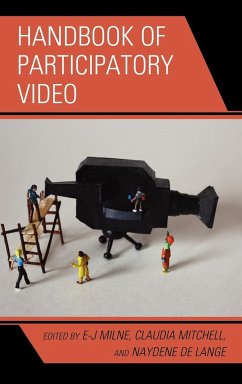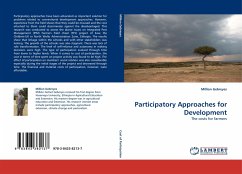
Participatory Action Research
Versandkostenfrei!
Versandfertig in 1-2 Wochen
94,99 €
inkl. MwSt.

PAYBACK Punkte
47 °P sammeln!
Through a rejection of the traditional separation between the researcher and the research setting, this volume discusses a philosophy in which the researcher is fully involved in the process of organizational learning and change. William Foote Whyte and his collaborators outline the theory and methods behind participatory action research, weigh up its strengths and weaknesses and then present cases where this research strategy has been used in both industry and agriculture from a variety of countries on four continents.














